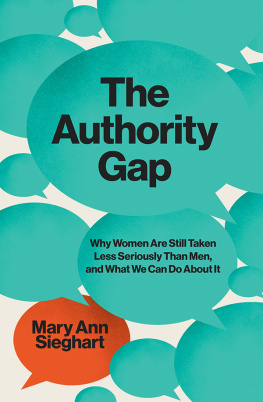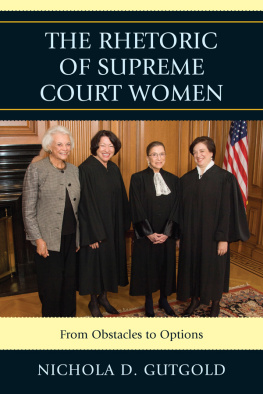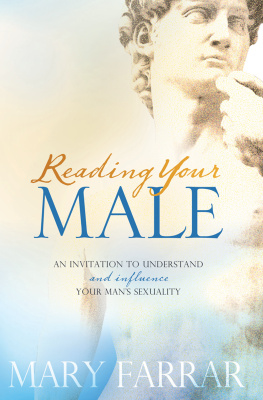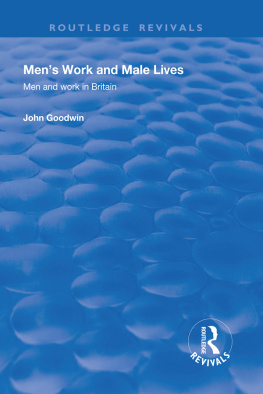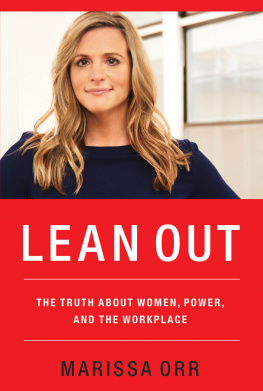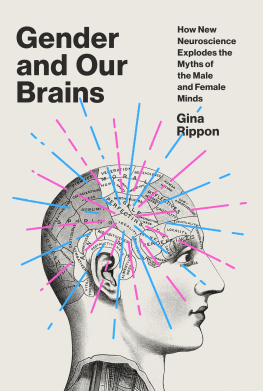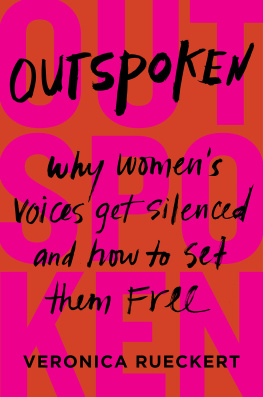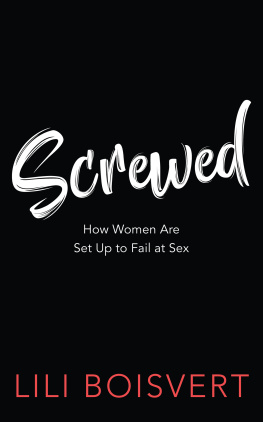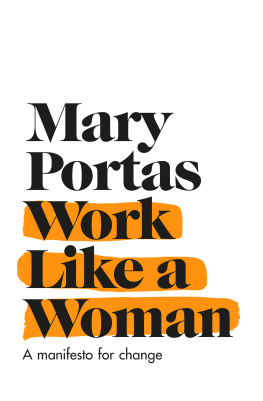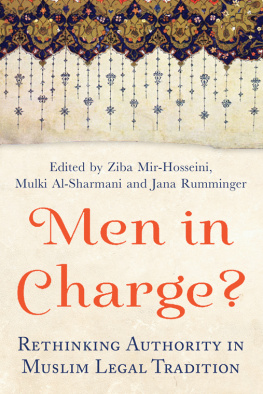Contents
Guide

THE AUTHORITY GAP
Why women are still taken less seriously than men, and what we can do about it
Mary Ann Sieghart

Copyright 2021 by Mary Ann Sieghart
First American Edition 2022
All rights reserved
For information about permission to reproduce selections from this book, write to Permissions, W. W. Norton & Company, Inc., 500 Fifth Avenue, New York, NY 10110
For information about special discounts for bulk purchases, please contact
W. W. Norton Special Sales at or 800-233-4830
Jacket design and illustration: Alicia Tatone
Production manager: Devon Zahn
The Library of Congress has cataloged the printed edition as follows:
Names: Sieghart, Mary Ann, 1961 author.
Title: The authority gap : why women are still taken less seriously than men, and what we can do about it / Mary Ann Sieghart.
Description: First American edition. | New York, NY : W. W. Norton & Company, 2022. | Includes bibliographical references and index.
Identifiers: LCCN 2021046883 | ISBN 9780393867756 (hardcover) | ISBN 9780393867763 (epub)
Subjects: LCSH: Sex discrimination against women. | AuthoritySocial aspects. | RespectSocial aspects. | Sexism. | WomenIntellectual life.
Classification: LCC HQ1237 .S54 2021 | DDC 305.42dc23
LC record available at https://lccn.loc.gov/2021046883
W. W. Norton & Company, Inc., 500 Fifth Avenue, New York, N.Y. 10110
www.wwnorton.com
W. W. Norton & Company Ltd., 15 Carlisle Street, London W1D 3BS
To Dai, the unlikely feminist
Contents
He tells her that the earth is flat
He knows the facts, and that is that.
In altercations fierce and long
She tries her best to prove him wrong,
But he has learned to argue well.
He calls her arguments unsound
And often asks her not to yell.
She cannot win. He stands his ground.
The planet goes on being round.
Wendy Cope
W HEN M ARY M C A LEESE was President of the Republic of Ireland, she led an official visit to the Vatican to meet Pope John Paul II. She was in the audience room at the head of her delegation, about to be introduced to the pontiff, when he reached straight past her, held out his hand to her husband instead, and asked him, Would you not prefer to be President of Ireland rather than married to the President of Ireland? Her husband knew better than to take the bait. As McAleese told me in an interview for this book: I reached and took the hand which was hovering in mid-air and said, Let me introduce myself. I am the President of Ireland, Mary McAleese, elected by the people of Ireland, whether you like it or whether you dont.
The Pope later claimed it was a joke but, if so, it was in poor taste. He had managed to snub a head of state before even acknowledging her presence. As McAleese recalled: He said, Im sorry, I tried a joke because I heard you had a great sense of humour. I said, I do, but that wasnt funny because you would not have done that to a male President. We would automatically respect a male head of state, so why not a female one? Because there is still an authority gap between women and men.
This sort of behaviour is incredibly frustrating for women. No one likes to be treated as if theyre inferior, particularly if theyre not. To see this more clearly, it helps to flip things around. So, if youre a man, I would like you to take a moment or two to do this thought experiment. Imagine living in a world in which you were routinely patronized by women. Imagine having your views ignored or your expertise frequently challenged by them. Imagine trying to speak up in a meeting, only to be talked over by female colleagues. Imagine women subordinates resisting you as a boss, merely because of your gender. Imagine women superiors promoting other women, even if they are less talented than you. Imagine people always addressing the woman you are with before they address you. Imagine writing a book and finding that half the population is reluctant to read it because it is written by a man. Would you just shrug your shoulders and say, Well, thats fair enough. Men are different from women. Or would it infuriate you? I think I can guess.
R.E.S.P.E.C.T is what the soul singer Aretha Franklin demanded, and its what women still have to fight harder than men to earn. However much we claim to believe in equality, we are still, in practice, more reluctant to accord authority to women than to men, even when they are leaders or experts. Every woman has a tale to tell about being underestimated, talked over, ignored, patronized and generally not taken as seriously as a man. (And when I say woman, I mean anyone who identifies as a woman.) Great strides have been made, and many men are good and respectful listeners, but however liberal we think we are, were nowhere near there.
Research shows that we still expect women to be less expert than men. Most of us men and women are still less willing to be influenced by womens views. And we still resist the idea of women having authority over us. In other words, there is still an authority gap between women and men.
And the authority gap is the mother of all gender gaps. If women arent taken as seriously as men, they are going to be paid less, promoted less and held back in their careers. They are going to feel less confident and less entitled to success. If we dont do anything about it, the gap between women and men in the public sphere will never disappear.
That gap is both huge and unmerited. The difference between the amount that men and women are paid and promoted is fourteen times greater than the difference between their performance evaluations. This is because 70 per cent of men rate men more highly than women for achieving the same goals.
This is, at least in part, because we are still too ready to associate male with authority. When I put together some slides to give a lecture on this subject at Oxford University, I knew I had to start by defining my terms. So I took a screenshot of the Oxford Dictionary Onlines definition of authority the very first result to come up on my Google search. Every sentence it offered as an example began with the same pronoun: He had absolute authority over his subordinates; He has the natural authority of one who is used to being obeyed; He hit the ball with authority; and He was an authority on the stock market. I couldnt have found a neater illustration of the problem. Yet didnt Margaret Thatcher have the natural authority of one who was used to being obeyed? Doesnt Serena Williams hit a ball with authority? Isnt Helena Morrissey an authority on the stock market? I wasnt looking for this differential treatment, only for a dictionary definition.
The same happened when I searched in Google Images for something to illustrate a slide on expertise. In the first twenty pictures, there wasnt a single woman. Bart Simpson appeared before we reached the first female, in a group with men. Finally, there was a decent-sized photo of a woman, but it turned out that she was having something explained to her by a male expert. Sometimes your subject just jumps up and slaps you in the face.
Surely this is all changing now, though? Were at last appointing more women to top jobs, and hurray for that. We now berate the Academy Award voters for ignoring female directors and are thrilled when more meaty parts are written for women. But what weve been seeing in the developed world since #MeToo is a kind of lip-service feminism. We are still more likely to follow and retweet men than women on Twitter. We are still more likely when we walk up to a man and woman standing together to address the man first. Men are still more inclined to ignore books written by women, though women lap up books written by men.

